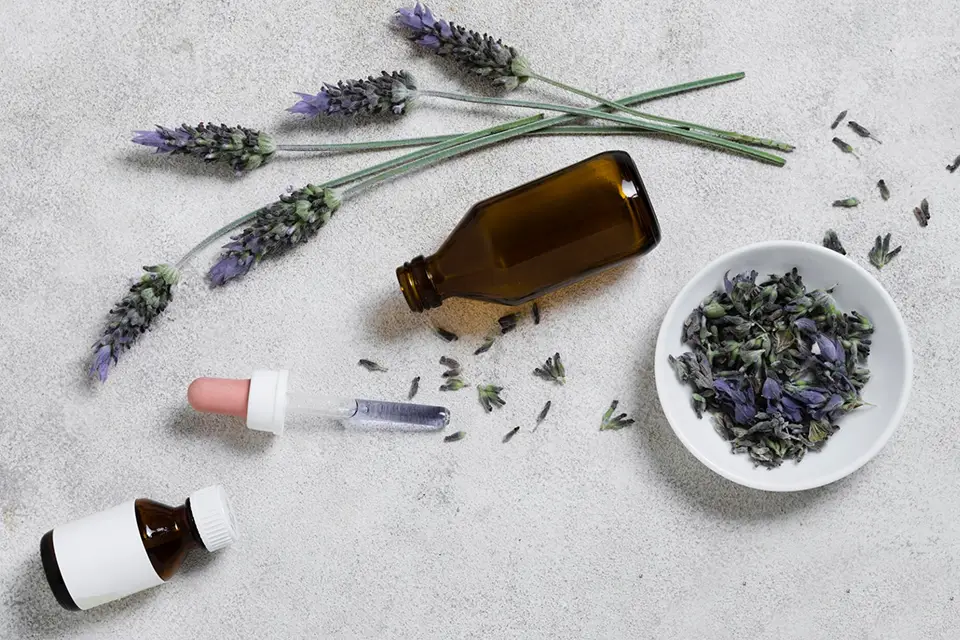Hello, my gorgeous friends! in this article, let’s talk about one of my favorite topics—how to care for our skin naturally. One fantastic, natural option to reduce wrinkles is essential oils. Essential oils have been used for centuries for their therapeutic and cosmetic benefits. Let’s unpack how they work, which ones are the best, and how to use them safely.
- Why Are Essential Oils a Good Choice for Wrinkles?
- Top Essential Oils to Combat Wrinkles
- How to Use Essential Oils for Wrinkle Care
- How Often Should You Use Them?
- Safety Tips for Using Essential Oils
- Why You Should Pair Essential Oils with a Healthy Lifestyle
- DIY Anti-Aging Facial Oil Recipe
- Final Thoughts
- FAQ Essentials
Why Are Essential Oils a Good Choice for Wrinkles?
As we age, our skin produces less collagen and elastin, two key proteins responsible for firmness and elasticity. Factors like sun exposure, environmental pollutants, and stress can speed up this process, leaving us with wrinkles and fine lines. While skincare shelves are bursting with creams and serums, essential oils can be a alternative solution because they are 100% natural and packed with nutrients, antioxidants, and vitamins that nourish the skin.
Think of essential oils as nature’s concentrated skincare elixirs. They penetrate deeply into the skin, working from within to support cell regeneration, fight free radicals, and improve hydration. Plus, they smell amazing, which is a little mood boost in every application!
Top Essential Oils to Combat Wrinkles
Not all essential oils are created equal, and what works for one person might not work for another. While these oils have been used for centuries in various cultures for their therapeutic properties, individual results may vary. It’s always a good idea to do a patch test before using a new essential oil to check for skin sensitivities.
Frankincense Essential Oil:
- Potential Benefits:
- May support skin health through its potential anti-inflammatory properties.
- Could contribute to reduced appearance of fine lines and improved skin texture.
Rosehip Seed Oil:
- Proven Benefits:
- Rich in vitamins A and C, which support collagen production and skin elasticity.
- Contains fatty acids that moisturize the skin and maintain its barrier function.
Lavender Essential Oil:
- Potential Benefits:
- May have calming properties for the skin.
- Contains antioxidants that could protect the skin from environmental stressors.
Geranium Essential Oil:
- Potential Benefits:
- Improves skin elasticity, tightens skin, and reduces the appearance of wrinkles.
Sandalwood Essential Oil:
- Potential Benefits:
- May provide hydration and smoothness to the skin.
- Could help reduce the appearance of inflammation.
Clary Sage Essential Oil:
- Potential Benefits:
- Contains antioxidants that may benefit the skin.
- Could help balance oil production and protect the skin from environmental damage.
How to Use Essential Oils for Wrinkle Care
Before you apply anything on your face, let’s talk about the right way to use essential oils. While they’re natural, they’re also potent and need to be handled with care.
Step 1: Dilution Is Key
Essential oils should never be applied directly to the skin as they can cause irritation or even burns. Always dilute them with a carrier oil. Some excellent carrier oils for anti-aging include:
- Jojoba Oil: Mimics the skin’s natural oils and absorbs easily.
- Sweet Almond Oil: Rich in vitamins A and E, perfect for sensitive skin.
- Argan Oil: Packed with fatty acids and antioxidants.
A safe dilution ratio is about 2-3 drops of essential oil per teaspoon of carrier oil.
Step 2: Patch Test
Even natural products can cause allergic reactions. Always test a small amount of diluted oil on your inner wrist before applying it to your face.
Step 3: Apply Strategically
- Gently massage the oil mixture into clean, damp skin.
- Focus on areas prone to wrinkles, like around the eyes, mouth, and forehead.
- Use upward strokes to stimulate circulation and firm the skin.
How Often Should You Use Them?
Essential oils can be used daily, but consistency is key. Most people see noticeable results within 4-6 weeks of regular use. For a complete anti-aging routine, try combining essential oils with other skincare steps like gentle exfoliation, hydrating serums, and sunscreen.
Safety Tips for Using Essential Oils
While essential oils are generally safe, there are some precautions to keep in mind:
- Beware of Photosensitivity
Citrus oils (like lemon or orange) can make your skin sensitive to sunlight. Always apply them at night and wear sunscreen during the day. - Store Properly
Keep your oils in dark, cool places to preserve their potency. - Avoid Overuse
More isn’t always better! Overusing essential oils can irritate your skin, so stick to recommended amounts. - Consult a Professional
If you’re pregnant, nursing, or have a skin condition, consult a dermatologist or aromatherapist before using essential oils.
Why You Should Pair Essential Oils with a Healthy Lifestyle
Skincare doesn’t stop at your bathroom counter! For the best results, combine essential oil use with these healthy habits:
- Stay Hydrated: Drink at least 8 glasses of water a day to keep your skin plump.
- Eat Antioxidant-Rich Foods: Berries, leafy greens, and nuts are your skin’s best friends.
- Get Enough Sleep: Your skin repairs itself while you sleep, so aim for 7-8 hours nightly.
- Protect Against the Sun: Sunscreen is a must, even on cloudy days.
DIY Anti-Aging Facial Oil Recipe
Here’s a quick and easy recipe to try:
Ingredients:
- 2 tablespoons Rosehip seed oil (carrier)
- 3 drops frankincense oil
- 2 drops lavender oil
- 1 drop sandalwood oil
Instructions:
- Combine all ingredients in a small dropper bottle.
- Shake well to mix.
- Apply 3-4 drops to your face and neck each night after cleansing.
This blend not only smells divine but also works to hydrate, repair, and protect your skin.
Final Thoughts
Essential oils are an excellent choice for maintaining your natural appearance. Packed with numerous benefits, they provide a simple, effective, and environmentally friendly approach to skincare.
Have you tried essential oils in your skincare routine? Share your experience in the comments below—I’d love to hear from you!
FAQ Essentials
1. Can I mix multiple essential oils for better anti-aging results?
Yes, blending essential oils can enhance their effectiveness. However, ensure that you research compatible oils and dilute them with a carrier oil before applying to your skin.
2. How often should I use essential oils for wrinkles to see noticeable results?
Consistency is key. Using essential oils 2-3 times a week as part of your skincare routine can yield visible improvements over time, but results may vary based on your skin type and other factors.
3. Are essential oils safe for all skin types, including sensitive skin?
Some essential oils can irritate sensitive skin. Conduct a patch test before use and consider using gentler oils like lavender or chamomile for sensitive skin.
4. Can essential oils be used alongside other anti-aging products, like retinol or vitamin C?
Yes, but be cautious. Alternate their usage or consult with a dermatologist to avoid overloading your skin or causing reactions.
5. Are there any essential oils that should be avoided for anti-aging purposes?
Avoid essential oils with high levels of phototoxic compounds, such as certain citrus oils, as they can make your skin more sensitive to sunlight.
6. Can essential oils improve other signs of aging, like sagging skin or age spots?
Yes, some essential oils, such as frankincense and rosehip, can help improve skin elasticity and reduce the appearance of age spots with regular use.



